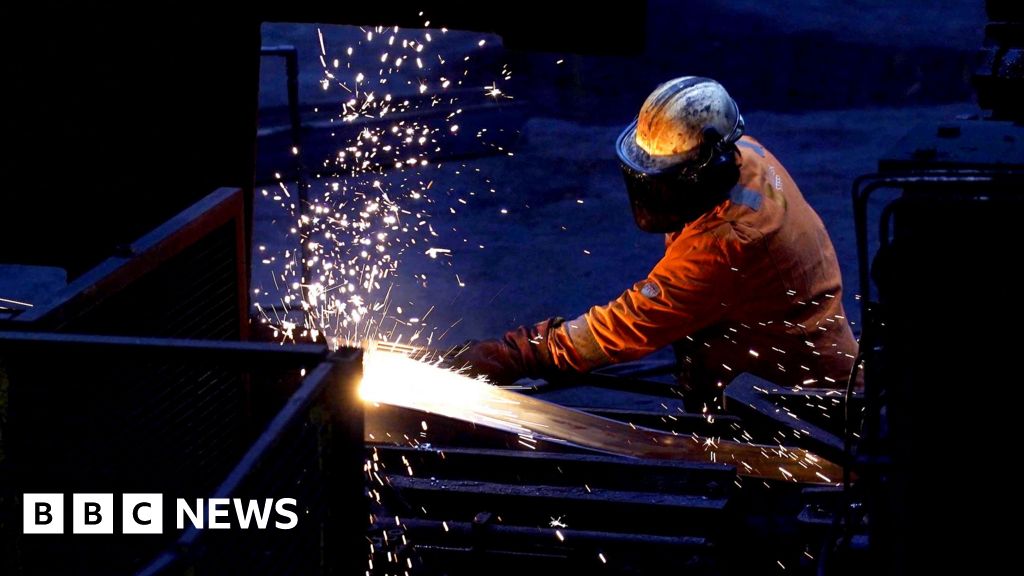British Steel has secured a five-year contract worth £500m to supply train tracks for Network Rail, in a move which could help safeguard the short-term future of the Scunthorpe steelworks. The company will forge more than 337,000 tonnes of track, securing thousands of jobs, two months after the government used emergency powers to prevent the blast furnaces from immediate closure. Ministers stepped in after accusing the Chinese firm Jingye, which bought British Steel in 2020, of planning to shut down the plant's blast furnaces. British Steel said the new contract represented a "huge vote of confidence in UK workers and British industry". While British Steel has long supplied the track used for Britain's railways with Scunthorpe producing rail since 1865, the latest deal provides guaranteed work for the plant for at least the next five years. The contract will begin on 1 July, with the company continuing to provide Network Rail with 80% of its track needs and other European steelmakers to supply "specialist rail products" alongside, the government said. Clive Berrington, Network Rail's director for railway business services, said the public company, which owns and maintains Britain's railways, was "committed to buying British where it makes economic sense to do so". "British Steel remain extremely competitive in the provision of rail and will remain our main supplier in the years ahead," he added. Craig Harvey, commercial director for rail at British Steel added the agreement demonstrated the firm's "importance to the UK's economy and infrastructure". In April, the government took control of British Steel from its owners but has so far stopped short of fully nationalising the business. It has not ruled out full public ownership, but is also looking for potential private investors to fund steelmaking operations, which has increasingly been raised as a national security issue. Concerns over the future of the UK's steelmaking capability were raised when talks between the government and Jingye broke down, with the business secretary saying it had "become clear" that the company was intent on closing down the blast furnaces. If the furnaces were starved of fuel and went out, the UK would no longer have the ability to produce so-called virgin steel, due to the process of restarting them being extremely difficult and costly. Virgin steel-making involves iron being extracted from its original source to be purified and treated to make all types of steel used in major construction projects, such as new railways. Scunthorpe, which employs 2,700 people, is the last plant in the UK producing virgin steel. It has four blast furnaces, all named after English Queens – Bess, Mary, Anne and Victoria, but Bess and Anne are the only two still in operation. The government said the new deal with Network Rail demonstrated its progress to "strengthen domestic manufacturing and supply chains" in order to boost economic growth. Transport Secretary Heidi Alexander, speaking from Scunthorpe on Tuesday, told BBC Breakfast that the contract was "critically important". "It's really important for us to have a resilient economy and to be able to ensure we can equip our national infrastructure here in the UK," she said. The deal comes ahead of the government's national infrastructure strategy, which is expected later this week. Uncertainty has surrounded the future of the UK's steel industry in recent years, with the closure of Port Talbot's blast furnaces in 2024. US tariffs targeting imports of steel to the country have also threatened businesses. The UK has been temporarily spared from President Donald Trump's executive order doubling steel tariffs from 25% to 50%. On Monday, Trump signed an executive order that will bring into force parts of a tariff deal agreed between the two countries last month. However, the expected removal of charges on steel imports was not included.
British Steel signs £500m deal securing thousands of jobs at Scunthorpe plant
